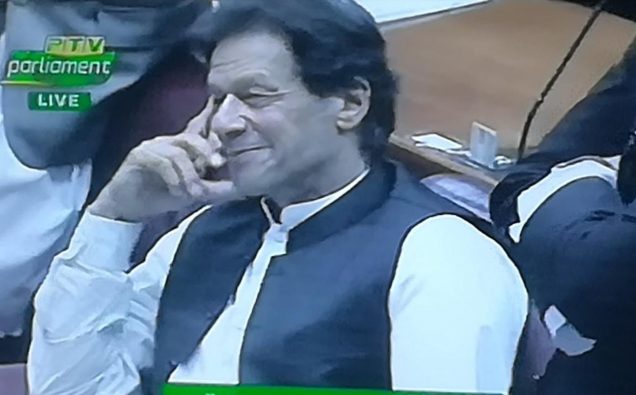
Pakistan’s National Assembly elected Imran Khan as the country’s prime minister as the former cricketer secured 176 votes in the chamber in a moment of crowning his 22 years of political struggle.
But the Khan, before chairing a meeting of his Pakistan Tehreek-e-Insaf party, described his success after July 25 victory as one part of the dream.
“The match isn’t over. Only one part of the dream has been complete” Khan said upon his arrival at the Parliament House.
His remark clearly signaled much work that his government has to do to pull Pakistan out of a labyrinth of troubles.
The PTI leader is scheduled to take oath as the country’s prime minister on August 18.
Khan and his supporters have been enthusiastically pitching the dream of bringing about a “change” in the governance towards a “Naya Pakistan” to the people as leaders of two former largest political parties – PML(N) and PPP – face corruption cases in courts.
But Khan’s PTI has faced criticism for welcoming several old faces with questionable past political leanings and even corruption charges.
In Thursday’s National Assembly vote for election of the Leader of the House, Shehbaz Sharif, the former longtime chief minister of Punjab, the largest province, got 96 votes after PPP – the party of former president Asif Ali Zardari and late Benazir Bhutto – backed out of its promised support for Sharif’s candidacy. The two parties have been bitter rivals in the past with a history of mutual distrust.
Imran Khan sat smilingly as Speaker National Assembly, the Lower House of the Parliament, announced results of the vote. The Opposition refused to accept the vote with prolonged protesting voices.
Former prime minister Nawaz Sharif, Shehbaz’s older brother, is serving a prison term after court conviction in a case implicating him in a case of undocumented and unreported huge offshore personal wealth.
Zardari may soon have to face a graft case.
Both political dynasties – which refused to democratize the parties and account for their massive assets – lost out to the nationally untested PTI in July 25 election after ruling the country during much of the last 50 years.
But Khan’s PTI – which will control Punjab, Khyber Pakhtunkhwa and will be a power sharer in Balochistan, and has amassed a huge vote in Karachi, the commercial hub and capital of Sindh – faces a plethora of challenges in combating corruption, poverty and realizing health and education for the people.
















